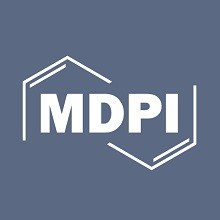
دانلود مقاله تکامل گردشگری سلامت
خلاصه
1. معرفی
2. سیاست های چین برای ترویج گردشگری سلامت
3. مدل های نظری و تحلیل های تجربی
4. بحث های عمیق
5. نتیجه گیری ها
بیانیه نویسنده اعتبار
اعلامیه منافع رقابتی
سپاسگزاریها
منابع
Abstract
1. Introduction
2. China’s policies for promoting health tourism
3. Theoretical models and empirical analyses
4. In-depth discussions
5. Conclusions
Credit author statement
Declaration of competing interest
Acknowledgements
References
چکیده
برای درک سیستماتیک تکامل گردشگری سلامت در چین، مطالعه حاضر به صورت بصری تکامل موضوع و مرزهای تحقیقات گردشگری سلامت چین را بر اساس پایگاهداده زیرساخت دانش ملی چین (CNKI) از طریق تجزیه و تحلیل کتابسنجی تحلیل میکند. یافته ها نشان دهنده وجود موضوعات خوشه بندی متنوع در تحقیقات گردشگری سلامت است و زمان شکل گیری هر موضوع متفاوت است. یافتهها همچنین نشان میدهد که تغییر در موضوع توسط سیاست دولت هدایت میشود. از لحاظ نظری، یافتههای مطالعه حاضر میتواند از یک سو با کاوش و خلاصهسازی جامع مضامین و موضوعات توسعه گردشگری سلامت در چین از زمان ظهور آن (یعنی 1981) به ادبیات گردشگری سلامت کمک کند و از سوی دیگر، دست، ارجاعاتی را برای مسیرهای اکتشاف گردشگری سلامت آینده ارائه می دهد. یافتههای پژوهش حاضر میتواند مرجعی برای مسیرهای توسعه مؤثر آینده صنعت گردشگری سلامت باشد
Abstract
To systematically understand the evolution of health tourism in China, the present study visually analyzes the theme evolution and frontiers of Chinese health tourism research on the basis of the China National Knowledge Infrastructure (CNKI) database through bibliometric analysis. The findings reflect the existence of diverse clustering themes in health tourism research, and the formation time of each theme is different. The findings also indicate that the change in the theme is led by government policy. Theoretically, the findings of the present study can, on the one hand, contribute to the health tourism literature by comprehensively exploring and summarizing the themes and topics of health tourism development in China since its appearance (i.e., 1981), and, on the other hand, provide references for future health tourism exploration directions. Findings of the present study can provide references for effective future development directions of the health tourism industry.
Introduction
Along with the outbreak of the novel coronavirus (COVID-19) pandemic, people have been paying more attention to health [1]. Consumers are more willing to pay attention to health risks, such as COVID-19-related health issues, and would like to participate more in health tourism. For example, a recent study [2] proved the moderating role of risk communication for health tourism to improve the physical and mental health of people affected by the COVID-19 pandemic. With the effective control of the pandemic in different countries and regions, the tourism industry may have more opportunities for health tourism development [3]. For instance, one recent study reflected the great needs of diversified provision of health tourism packages for different consumer groups [4]. As a result, it is expected that after the pandemic, tourists’ travel behavior may be changed [5], and the expected changes may require tourism destination organizations to be more responsible for the health concern of consumers [6]. Hence, a comprehensive overview of health tourism is conducive to explore current research gaps in order to identify future research directions and ultimately contribute to the development of the health tourism industry.
Conclusions
Theoretically, this study is expected to make meaningful contributions. First, this paper makes up for the lack of international understanding of China’s health tourism sector by reviewing health-related papers from the database in China, thereby helping to better develop Chinese and international academic and industrial cooperation. Second, on the basis of bibliometric results, this study takes policies into consideration, and analyzes the driving forces of China’s healthy tourism development in a more in-depth manner, helping to predict its future development more accurately. Third, through the analysis of the development process of China’s health tourism, the study provides a reference for the development of health tourism for other countries and regions.
Practically, this study is expected to bring some practical implications for the government and the market. First, for the government, the results found that academia has been fruitful in health tourism-related policy formulation and feedback. As such, a government can take academic research results into consideration when formulating health tourism-related policies. Second, for the destination market, the results found that the trend of health tourism is often related to government policies. Therefore, when developing resources related to health tourism, destination organizations can refer to the government’s macro policies to grasp the general direction.
